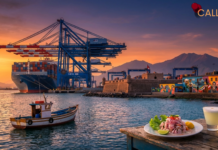According to the report “EU: Frozen Fruits – Market Report. Analysis And Forecast To 2025“, recently published by IndexBox, the production of frozen fruits stood at 799K tonnes in 2017, falling by 5% over the last year. This was preceded by a period of strong growth from 2015-2016, following a five year stretch of a relatively stable trend pattern. The reduced production figures recorded over the past year can be explained by the falling volume of production in two key producer countries – namely Poland and Italy.
Poland assumed a 45% share of EU frozen fruit production
Poland (359K tonnes) was the largest producer of frozen fruit in the EU, supplying 45% of total production. Italy (173K tonnes) assumed second position, with a 22% share, followed by Spain (35K tonnes), the Netherlands (34K tonnes), Belgium (31K tonnes), Hungary (27K tonnes), Germany (23K tonnes), Sweden (22K tonnes), Greece (19K tonnes) and France (19K tonnes). From 2007 to 2017, the most pronounced paces of growth in terms of production were observed in Spain (+14.6%) and Hungary (+13.4%), while the major producer – Poland saw a modest growth of +1.9% per year.
A substantial share of frozen fruit products from abroad remains typical of the EU frozen fruit market
Approx. 46% of the EU frozen fruit market is buoyed by imported products from abroad. The share of imported products in consumption fluctuated over the past decade, but always remained at a figure of at least 41%, thereby indicating the substantial extent of foreign products on the market. Serbia, Morocco, China, Canada, Ukraine, Egypt and Turkey constitute the main foreign suppliers to the EU market.
Read more on Fresh Plaza.




